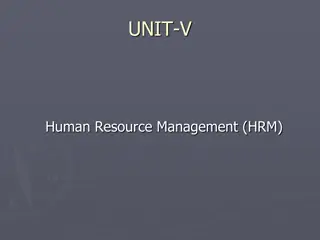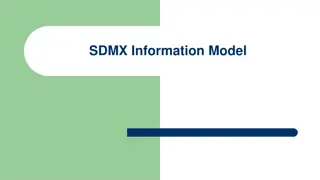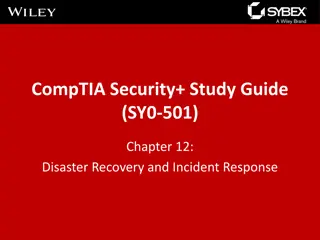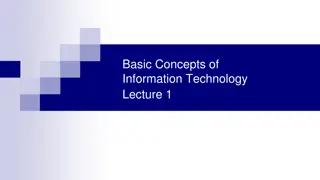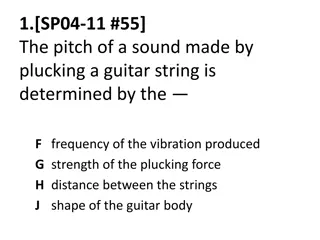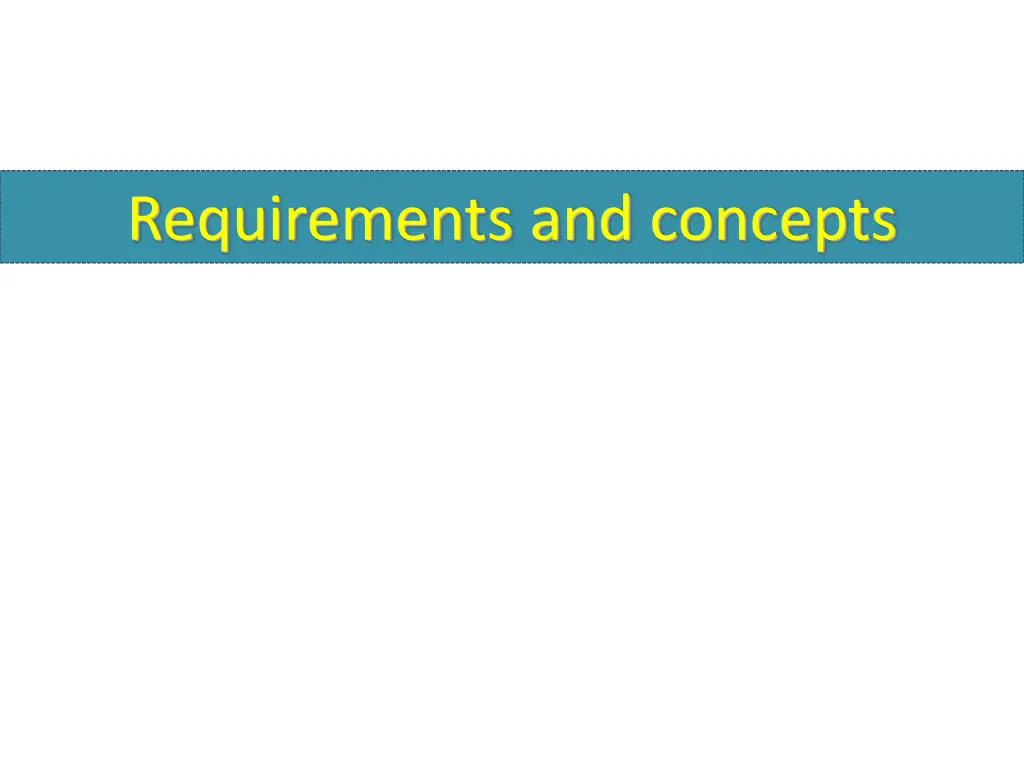
Understanding C++20 Requires Clauses in Templates
Explore the significance of requires clauses in C++20 templates for constraining template parameters, aiding in overload resolution, and improving error handling. Learn how these clauses impact template instantiation and function declarations.
Download Presentation

Please find below an Image/Link to download the presentation.
The content on the website is provided AS IS for your information and personal use only. It may not be sold, licensed, or shared on other websites without obtaining consent from the author. If you encounter any issues during the download, it is possible that the publisher has removed the file from their server.
You are allowed to download the files provided on this website for personal or commercial use, subject to the condition that they are used lawfully. All files are the property of their respective owners.
The content on the website is provided AS IS for your information and personal use only. It may not be sold, licensed, or shared on other websites without obtaining consent from the author.
E N D
Presentation Transcript
Validity of templates Templates are checked for validity On definition: syntactic correctness, correctness of independent names Not required by the language specification but supported by rules On instantiation: All rules of the language A template does not have to be correct for all combinations of arguments It would be impossible in most cases Compilers check the correctness only for the arguments used in an instantiation Templates are difficult to test Before C++20, there was no mechanism to specify requirements on template arguments Trial-and-error approach (see SFINAE for advanced misuse) Unreadable error messages when a template is incorrectly used C++20 introduces requires clauses and concepts for constraining template arguments They also assist in template function overload resolution (like SFINAE, unlike static_assert) Instantiation of a class template does not invoke instantiation of all members A valid class template instance may contain invalid member functions Example: copy-constructor of vector<unique_ptr<T>>
[C++20] Requires clauses A requires-clause acts as a constraint on template parameters Evaluated by the compiler in the moment of template instantiation template< typename IT, typename F> requires std::is_invocable_v<F, std::iter_reference_t<IT>> F for_each( IT a, IT b, F f); In this case, the requires clause contains a constexpr bool expression [C++20] std::iter_reference_t is the type returned by the * operator on an iterator Implemented directly through decltype std::iterator_traits<IT>::reference is no longer needed [C++17] std::is_invocable_v is a variable template defined as template< typename F, typename ... ArgTypes> inline constexpr bool is_invocable_v = is_invocable< F, ArgTypes...>::value; std::is_invocable is a class template defined to look like this: template< typename F, typename ... ArgTypes> class is_invocable { static constexpr bool value = /*...*/; }; the actual implementation uses partial specialization and other advanced tricks
[C++20] Requires clauses A requires-clause acts as a constraint on template parameters template< typename IT, typename F> requires std::is_invocable_v<F, std::iter_reference_t<IT>> F for_each( IT a, IT b, F f); If violated, this function declaration will be ignored during overload resolution Most likely, the result will be "no function declaration matches the call In general, there may be another declaration of the function that matches well This indicates that the problem is not inside the implementation of for_each For non-function templates, the violation will directly trigger an error message The requires clause also acts as documentation Note: The implementation of for_each probably contains the expression f(*a) The requires-clause essentially checks whether this expression is correct If the requires clause were not present Template instantiation would fail due to the expression f(*a) It would fail after overload resolution, not before (as with SFINAE or requires) The error message would point to the expression inside the implementation
[C++20] Concepts A concept is, logically, a Boolean function whose arguments are types, templates or constants In many cases, there is just one typename argument Evaluated by the compiler Note: C++14 already has a construct with the same underlying logic: template< typename T> inline constexpr bool is_reference_v = /*...*/; The difference is in some syntactic sugar associated with concepts Concepts may be defined using bool constants but not (easily) the other way round
[C++20] Concepts Definition of a concept: A concept may be defined using a requires-expression template< typename T> concept Dereferencable = requires (T x) { *x; }; In this case, the requires-expression states that the expression *x must be semantically valid for any x of type T template< typename F, typename ... AL> concept Callable = requires (F f, AL ... al) { f(al ...); }; A concept may also be defined using other concepts or constant Boolean expressions, including combining by && and || operators template< typename T> concept Reference = std::is_reference_v<T>; template< typename T> concept ConstReference = Reference<T> && std::is_const_v< std::remove_reference_t< T>>; In this context, && and || operators are well-defined even for erroneous operands If remove_reference_t is not defined for T, the result is false Negation is not supported here - it would not be consistent with the handling of errors
[C++20] Concepts Concepts used with all arguments explicit In the requires-clause template< typename IT, typename F> requires Iterator<IT> && Callable<F, std::iter_reference_t< IT>> void for_each( IT a, IT b, F f); In the definition of other concepts template< typename IT> concept Iterator = Dereferenceble<IT> && Incrementable<IT>; Concepts used with the first argument implicitly inferred from the context Instead of typename in template parameter declaration The first argument of the concept is the type being declared here template< Iterator IT, Callable<typename IT::reference> F> void for_each( IT a, IT b, F f); Just a syntactic sugar equivalent to a requires clause In autodeclarations Iterator auto it = k.find(x); Triggers an error if the return type of find does not satisfy Iterator [](Iterator auto it){ return *it; } Produces a requires clause in the generated template operator() In type-checking requirements inside a requires-expression template< typename IT> concept SubtractableIterator = requires (IT a, IT b) { {a-b} -> std::convertible_to<std::ptrdiff_t>; } Invokes the concept std::convertible_to<decltype(a-b), std::ptrdiff_t>
[C++20] Concepts Example template< typename K, typename V> concept StackOf requires (K k, V v) { {k.push(v)} -> std::same_as<void>; {k.top()} noexcept -> std::convertible_to< V>; {k.pop()} -> std::same_as<void>; }; template< typename K> concept Stack requires { typename K::value_type; requires StackOf<K, typename K::value_type>; };
[C++20] Concepts Advantages of concepts Explicit and systematic statement of requirements Understandable diagnostic messages Requires clause participates in overload resolution (SFINAE no longer required) Unlike a static_assert inside the template Adoption of concepts in standard library Previously existing parts of library are not upgraded to use concepts Some new parts like std::ranges are heavily dependent on concepts There are some generally usable concepts defined in <concepts> Often equivalent to previously existing traits in <type_traits> etc. Example: std::same_as does the same as std::is_same_v





